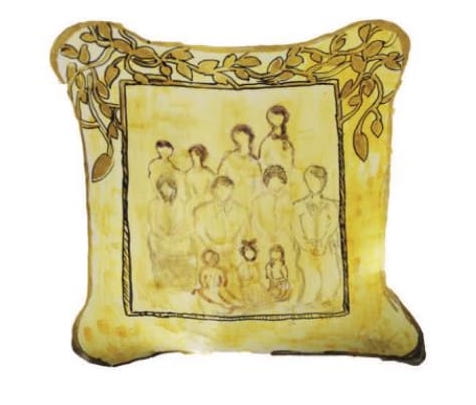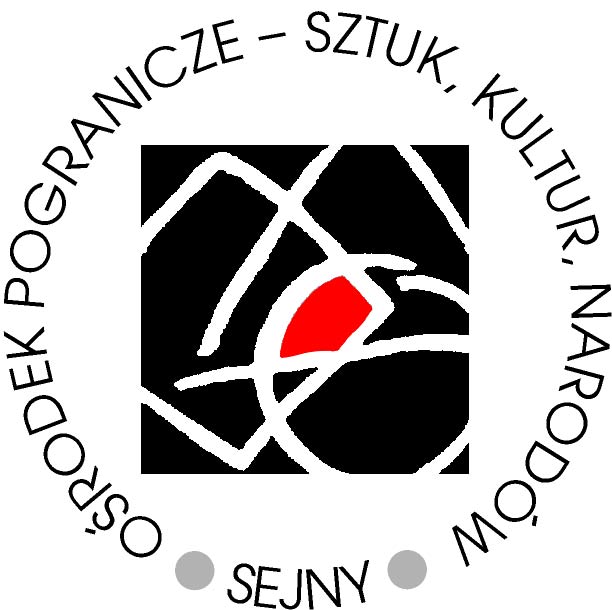New Agora Brussels
EUROPE – NATIVE REALM
How to build a Europe of Bridges? International Symposium New Agora “Europe – Native Realm” stems from the belief that a society too much concentrated on diversity and defence of identity has a problem with ethos of communality. The problem is also a growing concern for the inhabitants of the post-Cold-War, post-industrial, and post-modern era. The solution is not to erase borders but to gain competences in border-crossing, which in a culturally diverse world enable the creation of community-binding cements. Art and knowledge have the tools which support the long term creation of the cements in local communities.
The title comes from a famous book by Czesław Miłosz, Rodzinna Europa (Native Realm). For Miłosz, “native” is a problem of a Central-European with being ingrained in common European heritage and of the faint knowledge the West had about the Eastern part of its continent before the tearing down of the Berlin wall. However today dialogue between the East and the West is much more advanced, there is still much work to be done. European communality as a whole is becoming a bigger problem: How all the Europeans feel in the new Europe? What is their intercultural competence? Does it enable living together in a world of migrations, new cultural borderlands, and open borders?
One can fear the total decline of agora in the modern multicultural democratic societies. We pride ourselves with cultural diversity and act as if preserving distinct identities. However, are agora and culture of dialogue, which accompanies her, still present? If not, how then is the rebirth of agora possible? Do we need „New Agora” at all? Would it not be in contradiction with strong emphasis put on diversity and distinction? What are the sources of the contemporary crisis of multiculturalism and what are the possible ways out? These are some of the general questions for the Symposion in Brussels to be raised.
BRUSSELS CASE
Brussels has grown from a 10th century fortress town founded by a descendant of Charlemagne into a metropolis of more than one million inhabitants. The metropolitan area has a population of over 1.8 million, making it the largest in Belgium.
Since the end of the Second World War, Brussels has been a main center for international politics. Hosting principal EU institutions as well as the headquarters of the North Atlantic Treaty Organization (NATO), the city has become the polyglot home of numerous international organisations, politicians, diplomats and civil servants.
Although historically Dutch-speaking, Brussels became increasingly French-speaking over the 19th and 20th centuries. Today a majority of inhabitants are native French-speakers, and both languages have official status. Linguistic tensions remain, and the language laws of the municipalities surrounding Brussels are an issue of considerable controversy in Belgium.
TOPICS AND SPEAKERS
This year’s edition of the New Agora Symposion is entitled EUROPE – NATIVE REALM. Brussels mirrors actual socio-political struggles of the Belgian society, which is being torn by semi-nationalistic movements from both Dutch- and French-speaking communities. Thus, it is an epitome of contemporary European issues with communality, cohesion and the competence for border-crossing which the Symposium wants to address.
We want to dedicate the first day to the assessment of the NEW AGORA project. A Handbook of Dialogue, assembling all the articles and discussions of the previous editions in a form of introduction to intercultural dialogue issues, will be presented.
The second day concentrates on possible new interpretations of European society in the light of Czesław Miłosz’s idea of Europe as a native realm.
The third day focuses on issues of communality in the example of Brussels. We would like to underline the role of the young generation in the creation of “connective tissue” between communities. We will pay a special interest to the actual examples of social, cultural and educational activities responding to the challenges of contemporary intercultural dialogue.
HERITAGE OF THE NEW AGORA SYMPOSIA (NOVEMBER 18, 2011)
This day is devoted to assessing and discussing, in lectures and debates, the ideas prepared during the earlier New Agoras and their impact. A Handbook of Dialogue, assembling all the articles and discussions of the previous editions in a form of introduction to intercultural dialogue issues, will be presented. We also consider general questions connected to intercultural dialogue as such – how it can be understood and practiced.
The participants of our debate on these issues are: Krzysztof Czyżewski – cultural animator and the co-founder and chairman of the Borderland Foundation in Poland; Mayhill Fowler – PhD historian of Eastern European culture; Alexandra Laignel Lavastine – PhD historian and philosopher, specialist on Eastern European intellectuals of the 20th c.; Isabella Thomas – Senior Adviser to the Axel and Margaret Ax:son Johnson Foundation and Axess TV in Stockholm; Peter Vermeersch – professor at the Social Science Faculty of the University of Leuven in Belgium.
PROSPECTS AND THREATS FOR INTERCULTURAL DIALOGUE: EUROPE AS A NATIVE REALM (NOVEMBER 19, 2011)
On this day we explore examples of, prospects and threats for intercultural dialogue within Europe, and answer the question: How to build a Europe of Bridges? Critical analyses of forms of intercultural dialogue in Europe are presented as well as reflection on the crisis of multicultural society. Possible new interpretations of European society in the light of Czesław Miłosz’s idea of Europe as a native realm are drafted.
On this day also Café Europe, a meeting of eight European writers, commences, during which their creative writings are read and discussed in relation to Czesław Miłosz’s book Native Realm. Writers are: Ihar Babkou, Johan de Boose, Drago Jančar, Christopher Merrill, Donatas Petrošius, Edo Popović, and Ostap Slyvynsky.
The participants of the debate are: Krzysztof Czyżewski – cultural animator and the co-founder and president of the Borderland Foundation in Poland; Chris Kuelemans – artistic director of the Tolhuistuin, a new arts centre of Amsterdam; Alexandra Laignel Lavastine – PhD historian and philosopher, specialist on Eastern European intellectuals of the 20th c.
HOW TO MAKE “CONNECTIVE TISSUE”? EUROPEAN COMMUNALITY ISSUES: BRUSSELS (NOVEMBER 20, 2011)
A society too much focused on diversity and defense of individuality has a problem with the ethos of communality. This problem affects the increasingly multicultural population of post-Cold War, post-industrial and post-modern era. The point is not to eliminate borders, but to gain competence in crossing them, which in a multicultural world will allow creating community-binding cements. Only art and knowledge have the tools that help to create such a bond in the long run in local communities and in the element of interpersonal coexistence. The "border-crossers" movement seeks to produce connective tissue and prepare modern intercultural bridge-builders.
Special attention is given to Brussels, as an example of a socially torn space, with strong cultural variety and yet with growing border-crossing incompetence.
The participants of this debate will be: Chris Keulemans – artistic director of the Tolhuistuin, a new arts centre of Amsterdam; Elżbieta Matynia – Assistant Professor of Liberal Studies and Sociology at the New School of Social Research in New York; Paul Scheffer – professor of European Studies at the University of Tilburg.
SYMPOSION FORMAT
The New Agora is not a typical scholarly conference, but a forum for debate and exchange that is open to the public, especially students. About 6 speakers meet for three days in Brussels theatre De Markten and East Poland House to engage in a discussion on three key issues. In addition to their formal contribution during sessions, all speakers and participants take an active part in the discussions during all three days. The speakers’ contributions are treated as an introduction into a free, open and informal debate.
LANGUAGE
The official language of the New Agora Symposium is English.
Supported by a grant from Polish Ministry of culture and National Heritage.
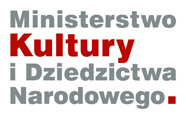
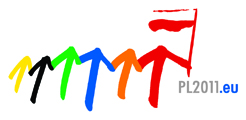
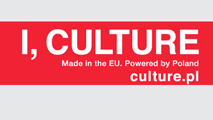
Supported by a grant from the Trust for Civil Society in Central and Eastern Europe
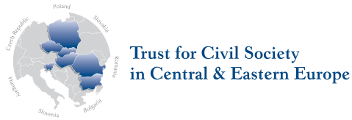
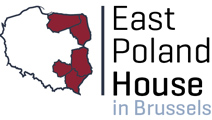
![]()



















































